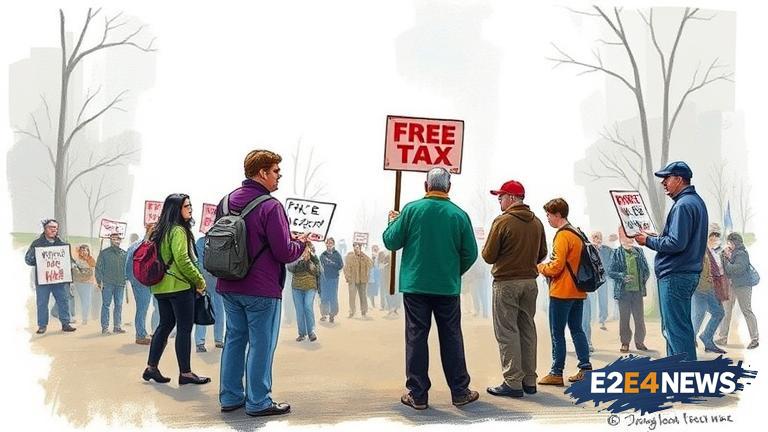The IRS Direct File service, a free tax filing option, has been a vital resource for low-income individuals and families. However, its future is now under threat, prompting activists to take action. The service, which allows eligible taxpayers to file their taxes directly with the IRS, has been available since 2023. It was introduced as part of a broader effort to make tax filing more accessible and affordable for all. Despite its benefits, the service has faced opposition from some lawmakers and tax preparation companies. These companies, such as TurboTax and H&R Block, have lobbied against the service, arguing that it could lead to a loss of business. Activists, on the other hand, argue that the service is essential for ensuring that all taxpayers have access to free and accurate tax filing options. They point out that many low-income individuals and families rely on the service to file their taxes, and that its elimination could lead to increased costs and barriers to access. In response to the uncertainty surrounding the service, activists have launched a campaign to preserve it. The campaign, which includes a petition and social media outreach, aims to raise awareness about the importance of the IRS Direct File service and to pressure lawmakers to protect it. So far, the campaign has garnered significant support, with thousands of people signing the petition and sharing their stories about the importance of the service. As the debate over the service continues, activists remain committed to fighting for its preservation. They argue that the service is a critical component of a fair and equitable tax system, and that its elimination would be a step backwards. The IRS has stated that it is committed to providing free and accessible tax filing options, but the future of the Direct File service remains uncertain. In the coming months, lawmakers will be considering legislation that could impact the service, and activists are urging them to prioritize its preservation. The outcome of this debate will have significant implications for taxpayers across the country, and activists are working tirelessly to ensure that the IRS Direct File service remains a viable option. The service has been shown to be effective in reducing tax filing costs and increasing access to tax credits, and its preservation is essential for promoting economic mobility and fairness. As the campaign to preserve the service continues, activists are calling on lawmakers to prioritize the needs of taxpayers and to protect this critical resource. The future of the IRS Direct File service may be uncertain, but one thing is clear: activists will continue to fight for its preservation and for a fair and equitable tax system.
